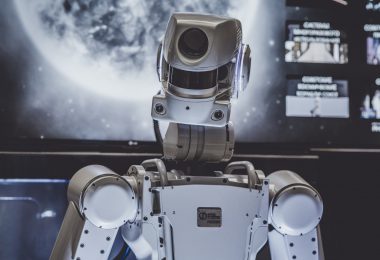Some types of data can be analyzed and digested by computers considerably quicker than by people. You can alter data in your “brains,” which consist solely of computers, and use superhuman computations to create a multitude of options. For example, the largest computers with chess training are now able to predict several steps in advance and solve problems considerably more delicately than the best human chess players. Computers also learn far faster, reducing complicated options to the best. Yes, people may learn from their errors, but we are considered defective when we deal with the kind of problems that are so important to machines.
Compared to humans, computers have several advantages. They have a greater memory, which allows a huge quantity of data to be provided and retrieved extremely soon. Computers can continuously and 24 hours compute, analyze and execute jobs since they do not require the same sleep as people. Computers are simply accurate, independent of faults or power outages, than humans in an increasing number of high-value professions. Emotions, emotions, desires, needs, and other things can obscure our judgment and intelligence.
Are computers ever going to surpass humans in intelligence?
Artificial intelligence (AI) is a popular topic in the news, conferences, and business brochures. However, the technology is still in its infancy. Applications formerly seen as science fiction may become a reality in a few years. The Electronics section of Merck helps AI create specialized materials.
Not clever, but smart.
We may create generic algorithms that are implemented effectively on the computer, rather than the computer learning itself, after an extensive study of each job. In chess and, more recently, computer software, top human players have been defeated. The achievement was remarkable and smart methods were used, but it did not lead to universal intelligence. Of course, big chess players are frequently not champions. Expertise in a specific kind of problem solution cannot be a valid intelligence indicator.
Our intellect and experience are closely related, rather than supernatural, to the inherent causal capabilities of our brain. As individuals throughout history examined the world, this assumption has been very helpful to science. The human brain, which consists of three pounds, is by far the most sophisticated piece of organized active matter in the known cosmos. However, it must comply with the same physical rules as dogs, trees, and stars. There is no such thing as a free pass. We don’t completely comprehend the causal capabilities of the brain, but we always observe them. For example, one set of neurons is active when you perceive colors, whereas in another cortical region cells are connected with happy emotion. When activated by an electrode of a neurochirurg, the patient looks colorful or laughs. When the brain is shut down under anesthesia, these emotions are gone.
You need to be an expert instead of a generalist.
On the other hand, today’s AI apps concentrate continuously on a certain job. They solve issues by utilizing rules specially developed for the job. So, although a chess computer might learn to better its game strategy over time, it couldn’t drive a car.
The capacity to learn on its own is a key characteristic of powerful AI, which we know well in the context of machine learning. Machine learning not only needs a great deal of data and issues but also specialized algorithms that can detect significant patterns in the data. These algorithms should be dynamic and learnable so that they can be adapted to changing flying circumstances. Furthermore, AI must be able to use the right techniques to deal with the issue. In some respects, this is what the human brain takes up in our life. For us, it takes 18 years, at least according to the law, to reach an acceptable degree of maturity. The only method to produce predictions or judgments without explicit programming is via self-optimizing algorithms which are suitable for learning and interacting. AI needs strong algorithms, plus knowledge and experience – gathered as data – to decide which one is best suited to a particular issue. Researchers still need to create a powerful, self-optimizing AI. This will thus need advances in machine learning to make the shift from weak to strong AI. Most scientists believe that it is conceivable.







[…] a lot of debate in the United States and across the world. Many individuals find the concept of producing children unpleasant and believe that it is unethical, which are genetically almost like […]
[…] are easily available on the internet. Graphic content often occurs in advertisements and pop-ups. What we are looking for does not necessarily correspond to what we want. Some […]
[…] bloggers with a variety of plugins, from tiny personal blogs to business websites, to improve the functioning of blogs. WordPress is a core code package including all the necessary components for a normal […]
[…] of virtual reality is being developed, offering even more instant enjoyment. Virtual reality buying software allows consumers to purchase in a far more emotive way than to create virtual wish lists. […]